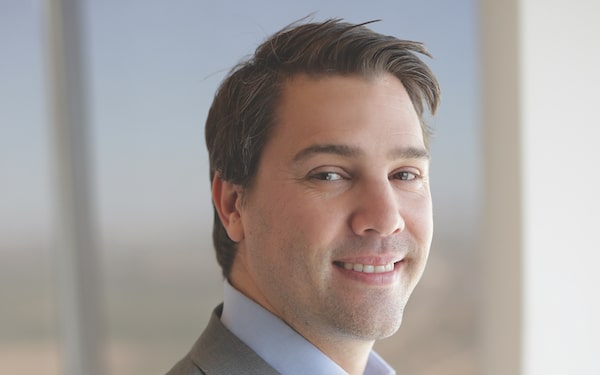Over the years Yoni Assia has been featured in the Fintech 40 and City AM’s top 100 fintech influencers. Here Yoni Assia talks exclusively to the Good Broker Guide about where eToro has been, where they are going and what makes them a challenger to traditional fund managers.
Why did you set up eToro and is it today what you had originally planned it to be?
eToro was founded in 2007 with the vision of opening up the global markets for everyone to trade and invest in a simple and transparent way.
We wanted the eToro to become a community where people could share their ideas. We built the platform as a social network for traders and investors, where they can execute trades, but also see what others are doing and talk to each other.
We invented copy trading, or at least brought it to the masses, and ‘copy’ remains a key feature of our multi-asset platform today. Around half of our clients use it, both in terms of following others, or investing in our growing range of CopyPortfolios.
While we have come a long way since 2007, this social or community ethos still holds true. We now have a community of over 10 million registered users from over 140 countries.
Today, eToro acts as a bridge between the old world of investing and the new, helping investors navigate and benefit from the transition of assets to the blockchain. eToro is the only place where investors can hold traditional assets such as stocks or commodities alongside ‘new’ assets such as bitcoin.
We believe that in the future all assets will be tokenised and that crypto is just the first step on this journey.
For investors looking to copy traders, why use eToro instead of a traditional fund manager?
We believe that investors are looking for three things:
- access to the assets they want,
- knowledge and insight, and
- someone to make the process easy.
Unlike traditional fund managers, eToro offers all three and at a price point which makes investing accessible to everyone.
Joining eToro gives investors of all types access to the assets they want today from commodities and stocks, through to cryptoassets. They also benefit from being part of a global community of more than 10 million registered users who share their investment strategies and insights and anyone can follow the approaches of those who have been the most successful.
It is simple and easy to set up an account, then buy, hold and sell assets.
For those new to investing, the community aspect of eToro’s platform and the educational resources introduce users to the risk profiles of the different asset classes and the types of returns to expect. Our community is alive 24/7 to answer questions and share insight. You can’t compare this to investing with a traditional fund manager.
eToro clearly isn’t worried about stepping into new markets (cannabis and crypto for example). Any view on what the next emerging industry is going to be?
We believe that crypto and the blockchain technology that underpins it will have a huge impact on global finance and is therefore a major focus for our firm. Blockchain has the potential to revolutionalise finance and we believe that we will see the greatest transfer of wealth ever onto the blockchain.
We are already seeing the tokenisation of assets – crypto is one example but we are also seeing tokenised gold and art. Just as eToro has opened up traditional markets to investors, we want to do the same in a tokenised world.
The rise of crypto has introduced millennials to trading. Do you think crypto is here to stay and how heavily do you think cryptocurrencies should be regulated?
We fully believe in crypto. For me the easiest way to try and explain the significance of crypto and the blockchain technology that underpins it is to compare it to the internet.
The relationship between blockchain and cryptoassets is similar to the one between the internet and email. Much like email is just one use case of the internet, cryptoassets – namely bitcoin the first crypto – is the original use case of blockchain technology.
We believe that blockchain will transform finance in the same way that the internet revolutionized communications.
A conducive regulatory environment is vital to protect consumers and foster growth and innovation within the investment industry. As such in the UK, eToro was the driving force behind the establishment of CryptoUK, the first self-regulatory trade association for the UK cryptoasset industry.
Its remit is to promote higher standards of conduct and to educate politicians and regulators about the industry and its potential. The recent report from the UK’s Treasury Select Committee reflected our calls for the introduction of proportionate regulation to improve standards and encourage growth.
What’s the ultimate goal for eToro?
After 11 years our vision remains unchanged. We want to open up the global markets for everyone to trade and invest in a simple and transparent way. As the world of investing evolves that means eToro evolving too so that we can continue to support our clients and help them meet their investment goals.
And finally, what are your top three online resources that new traders and investors can use to improve?
- We have some great educational material available free of charge on the eToro platform.
- We are also big fans of Finimize which provides a simple digest of the top two financial stories each day.
- There is no shortage of information out there but humans are social creatures so we like to discuss things with others and learn from others. That brings us back to the community aspect of eToro.
Yoni Assia is founder and CEO of eToro.

Richard is the founder of the Good Money Guide (formerly Good Broker Guide), one of the original investment comparison sites established in 2015. With a career spanning two decades as a broker, he brings extensive expertise and knowledge to the financial landscape.
Having worked as a broker at Investors Intelligence and a multi-asset derivatives broker at MF Global (Man Financial), Richard has acquired substantial experience in the industry. His career began as a private client stockbroker at Walker Crips and Phillip Securities (now King and Shaxson), following internships on the NYMEX oil trading floor in New York and London IPE in 2001 and 2000.
Richard’s contributions and expertise have been recognized by respected publications such as The Sunday Times, BusinessInsider, Yahoo Finance, BusinessNews.org.uk, Master Investor, Wealth Briefing, iNews, and The FT, among many others.
Under Richard’s leadership, the Good Money Guide has evolved into a valuable destination for comprehensive information and expert guidance, specialising in trading, investment, and currency exchange. His commitment to delivering high-quality insights has solidified the Good Money Guide’s standing as a well-respected resource for both customers and industry colleagues.
To contact Richard, please see his Invesdaq profile.


